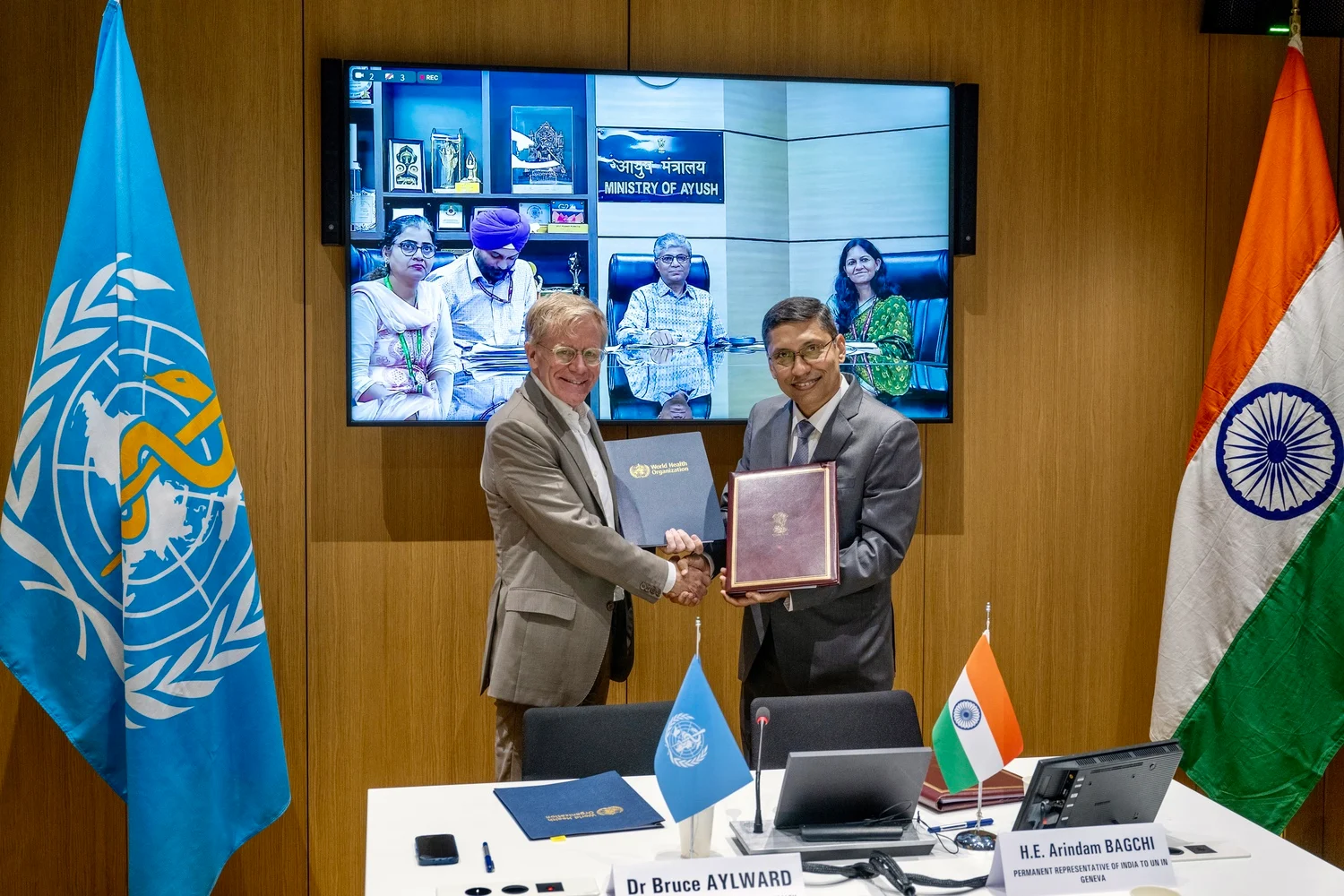By strengthening WHO’s capabilities in traditional medicine, this agreement seeks to foster international cooperation and solidarity. Additionally, India’s assistance would support WHO’s main activities from 2025 to 2028. The Centre will concentrate on research, primary healthcare, indigenous knowledge, digital health, and the biennial global summits on traditional medicine. It is situated in Jamnagar, India. Under Dr. Shyama Kuruvilla’s direction.
The Gujarat Declaration was the outcome of the inaugural WHO worldwide meeting on traditional medicine, which took place in Gujarat in August 2023. The next summit is planned for November 2025, which also happens to be the month that the Global Strategy for Traditional Medicine, 2025–2034, is introduced. As part of its support, India has committed to fund the WHO’s Traditional, Complementary, and Integrative Medicine (TCI) unit for five years starting in 2023. The TCI unit is tasked with creating a new global strategy and producing important technical documents that will guarantee the safe and efficient integration of traditional medicine into national health systems.
In order to attain universal health coverage, Dr. Bruce Aylward, Assistant Director-General of the World Health Organization, stressed the significance of incorporating traditional medicine within national health systems. Vice Minister Vaidya Rajesh Kotecha and Ambassador Arindam Bagchi emphasized the commitment of India to traditional medicine for world health, highlighting the common goal of WHO Director-General Tedros Adhanom Ghebreyesus and Prime Minister Narendra Modi.
To enhance traditional medicine’s contribution to attaining health for all, the WHO Global Traditional Medicine Center and TCI unit work closely together. The WHO Technical Expert Network meets on a regular basis as part of this, which is organized to guarantee that all of WHO’s offices take the same stance on traditional medicine.
SOURCE:
ETHEALTH WORLD








